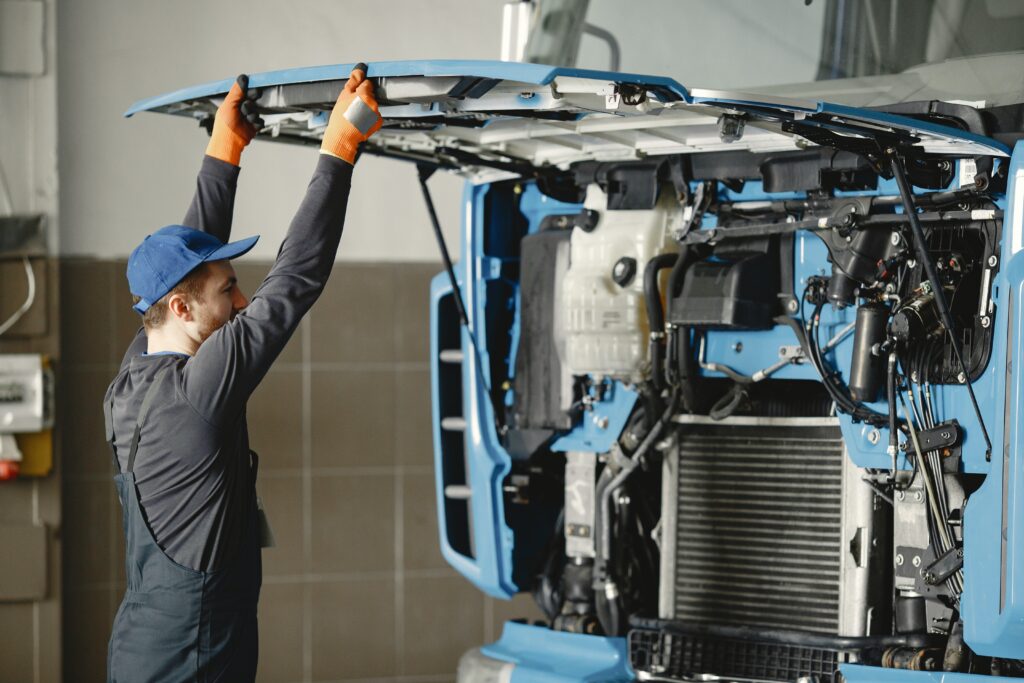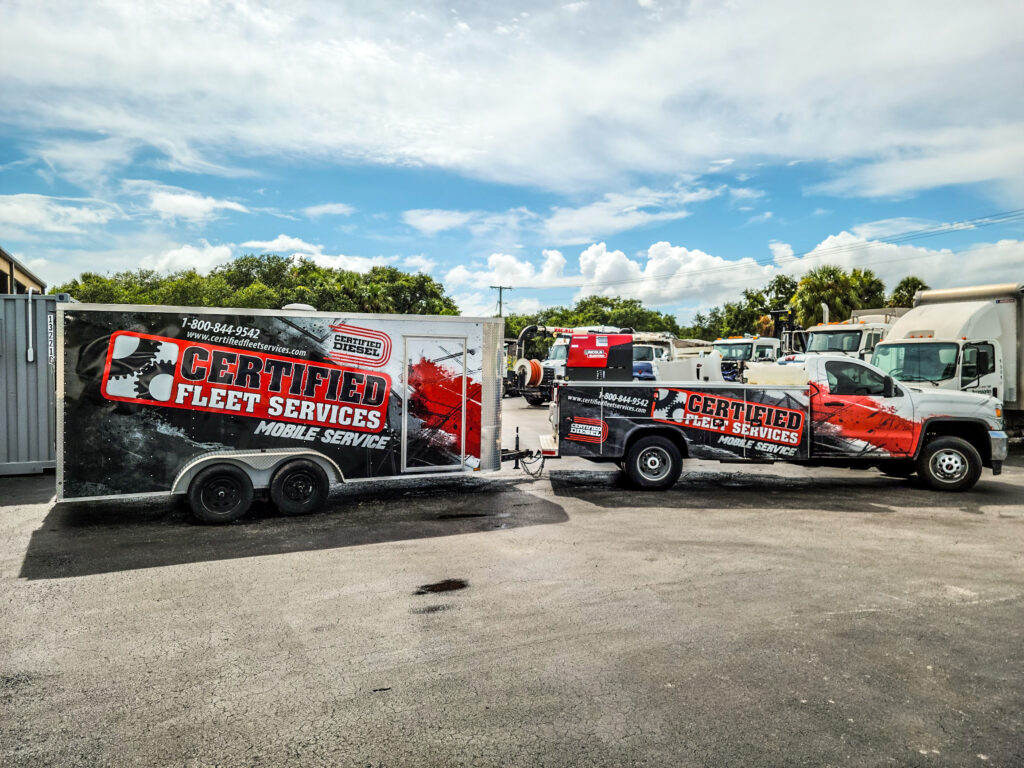ReWith gas prices rising (Statista.com, 2024), along with the fact that more truck drivers will be needed in the next decade (Statisa.com, 2024), implementing strong, consistent fleet management strategies is key for a fleet company’s success.
In fact, many companies across the world are reaping the rewards and benefits of quality fleet management, by implementing a sustainable, well-ironed fleet management strategy for storing data, analyzing trends, reporting results, and implementing company-wide initiatives.
But, if you fail to build a sophisticated fleet management strategy, you may not have as many opportunities available at your fingertips.
Fortunately, with the right fleet management strategies in place, there’s no reason to believe you won’t be able to achieve your company’s goals.
Certified Fleet Services here: our team came together to discuss which fleet management strategies helped us become one of Inc. 5000’s fastest-growing U.S. companies. The result of our reflections is this article.
We’d like to share our top fleet management strategies for success for local fleet businesses. Join us as we dive into our five go-to fleet management strategies for company success.
1. Develop a clear fleet management strategy
Fleet managers: with a clear and successful fleet management strategy, you’ll be able to optimize your fleet’s performance, decrease costs, increase productivity, and ensure the safety of your drivers.
Your strategy should include different parts of fleet management, such as:
- Vehicle acquisition
- Vehicle maintenance
- Fuel management
- Driver training
- Safety training
- Route planning
What’s more, a successful fleet management system is flexible enough to adapt to market fluctuations, emerging technologies, and regulatory compliance procedures.
By developing a comprehensive fleet management strategy, you’ll be able to better satisfy customers, protect your drivers, and ensure top-quality vehicle performance. Also, you’ll be better positioned to make more informed decisions, measure progress, and accomplish your business goals.
2. Implement a detailed maintenance and warranty schedule
While this strategy may seem somewhat obvious, it’s worth mentioning. When hurricanes or stormy weather hits, strikes or quality assurance issues crop up, or supply chain issues or inventory shortages occur, preventive maintenance and warranty schedules can fly under the radar.
Issues that can occur if you allow maintenance and warranty schedules to slip include:
- Inaccurate budgetary forecasting: if unexpected repairs are incurred from unmaintained assets, you could spend more money than you planned.
- Safety compromises: employee and roadside safety can be compromised if faulty vehicles or equipment are used.
- Pre-mature equipment replacements: if a warranty lapses, you might have to replace equipment sooner than you planned.
To prevent the above-mentioned issues, you can incorporate a strict fleet maintenance plan and strategy by ensuring your fleet’s tracking systems and maintenance schedules work at peak capacity.
A diesel fleet repair shop can help you help you maintain your fleet, so you can go back to implementing your fleet strategy and operating at peak performance levels.
3. Audit your processes to reveal hidden costs
Conducting is just as important as vehicle upkeep and preventive maintenance. To improve fleet management, we recommend scheduling frequent and thorough internal audits.
What’s more, we suggest consulting with other teams and departments within your organization to ensure that each component of your fleet is analyzed and regularly reviewed.
Audits can help companies make informed decisions during unsteady economic times. An audit can help if, for example, gas prices shoot up.
You can benefit from a complete audit of your fleet’s gas usage. Fleet managers can take the data they glean and can turn the insights they learn into an actionable plan.
In fact, many companies have changed their vehicle idle time policy as a result of conducting a fuel consumption audit. By auditing processes with a fleet metrics tracking system and/or professional fleet repair team, you can create a more safe and efficient fleet.
4. Maintain open lines of communication with all stakeholders
One of the challenges in fleet management involves ensuring that everyone is on the same page. Fleet managers must maintain effective communication with all members of the team — including drivers, technicians, suppliers, and supervisors — to ensure peak fleet performance.
As such, maintaining open lines of communication is crucial.
One way to do so is to encourage an open-door policy and listen to the feedback and concerns voiced by stakeholders. By providing the space for individuals to voice praise and identify areas for improvement, you can optimize fleet operations and sustain reliable asset management.
In addition to maximizing fleet performance and minimizing breakdowns, with open lines of communication, you’ll also gain valuable insights on improving safety and compliance.
Cohesive and consistent communication with drivers, managers, technicians, and customers can ensure satisfaction on the job (and with your product). When stakeholders are satisfied with your product and processes, they’re more likely to come back, thereby helping you build a more successful fleet operation.
5. Ensure vehicle and driver safety every step of the way
Part of a fleet manager’s job is to ensure that safety is numero uno. After all, if drivers and vehicles aren’t safe, a fleet can’t do its job at its best.
A critical aspect of a proper fleet management strategy is to ensure that safety is a consistent part of daily fleet operations. Here are a few simple ways you can ensure build your fleet management strategy with safety in mind:
- Lead in-state training programs for drivers and fleet team members: find training programs that rely on predictive analyses that incorporate how to grow or adapt your fleet as market conditions change.
- Track driver behavior: if members of your fleet are displaying reckless driving, take action. Some examples of behavior that you should ideally track include speeding, braking, turning corners, fast accelerations, physical and emotional health, and substance abuse.
- Make time to talk with fleet team members: Listen to fleet personnel who work in different positions in your company. Often, these workers have a better view of safety operations and what can be improved. Ongoing dialogue will give you more insight as to what’s working well and how safety protocols can be improved.
Certified Facts
With fleet management, staying ahead of issues and repairs is paramount to a fleet’s success. Responsive tradesmen who use the latest technologies should execute all aspects of fleet management, aspects such as fleet repairs.
To learn more about what fleet management looks like — and what Certified Fleet Services’ fleet management team does to ensure quality fleet management — check out our Instagram post here!
Bonus strategy: partner with an experienced fleet specialist
Final thoughts: more than anything else, when it comes time to build your fleet management plan, you’ll want to partner with an experienced fleet specialist. By partnering with industry experts, you’ll learn how to make your fleet more efficient and cost-effective.
Working with a reliable partner who understands your business inside and out — as well as the industry at large — will help fleet managers create a more efficient, data-driven, and successful fleet.
If nothing else, effective fleet management starts with the people you surround yourself with. When you surround yourself with industry professionals who can create a personalized approach and analyze parts of your operation to help you determine what’s best for your fleet, you can reduce costs, streamline complex processes, and adopt new protocols for compliance with regulations.
At Certified Fleet Services, we provide quality mobile and in-shop diesel repairs to help fleet personnel improve fleet safety, maintenance upkeep, fuel management, and more. Our ASE-certified technicians have more than 25 years of experience repairing and maintaining diesel-powered fleet assets.
If you’re looking to increase profitability, boost your fleet’s overall performance, and get your fleet’s assets back on the road faster, don’t hesitate to contact us today. We’d be happy to help you with all your diesel fleet’s needs.
Certified Fleet Services: Getting You Back on the Road Faster














